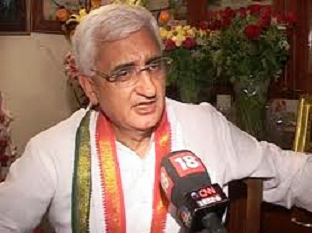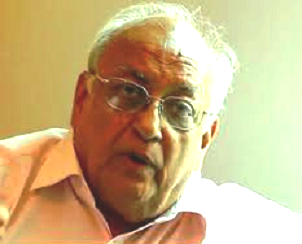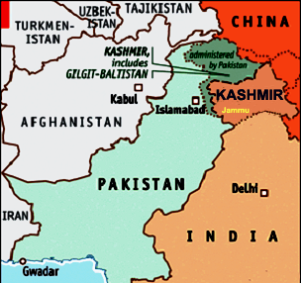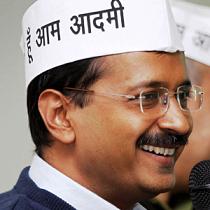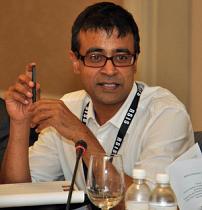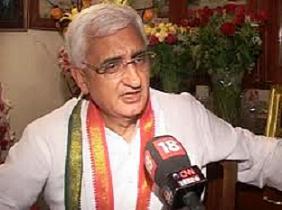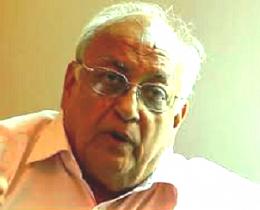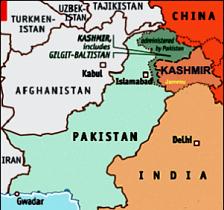Kashmir exhilarated by result oriented talks
The first principle of contract negotiations is: don't remind them of what you did in the past - tell them what you're going to do in the future. Stan Musial
Salman Khurshid , Indian External Affairs Minister, stresses the need to change the old mindset of India and Pakistan and suggests adoption of new ways to resolve Kashmir issue (dunyanews January 29, 2014). In continuation, Salman Khurshid harps on integral part with no external intervention mantra, a manifestation of chronic intransigence in any effort to solve the problem. The nursing of the festering wound, as widely accepted factuality, cannot continue indefinitely and must be remedied before becoming cancerous involving the whole body.
The year 2013 compared to bygone years was quieter; the year of mass arrests of 1325 people of all ages, 307 students and 95 minors on the charge of stone-pelting and unusually a small number of 6 civilians killed and 90 injured in clashes during the year. Kashmiri martyr Afzal Guru hanged & buried in Delhi’s Tihar jail on February 09, 2013 made the headlines and Kashmiris engaged in hide and seek and stone-pelting exercise giving vent to anger put Kashmir routinely on collision course with occupational army.
Pakistan apparently with good intent talks of cooperation to resume dialogue process to find out new avenues for resolution of the core issue Kashmir and other issues as well. India on the one hand seems to support demilitarization, softening of ceasefire line restrictions and free trade between two Kashmirs and on the other alleged cross-border terrorism, skirmishes resulting in deaths of military personal takes the issue back to square one. The recent issue of some drug peddler reportedly detained by Indian army, surprisingly, brought everything to a grinding halt.
Times of Oman reports (January 31, 2014), Kashmir observed complete shut down on a military court mockery verdict exonerating five army officers involved in the killing of five civilians 14 years ago. The five civilians from a point-blank range were brutally killed in Pathribal village in Kashmir, days after the massacre of 35 Sikhs in the remote village of Chattisinghpora in March 2000. Scores of other such incidents have been reported and the army equipped with draconian laws, which it does not need and a law unto itself, acts with impunity to deliver justice as it deems fit.
Praveen Swamy writes, "From Northern Ireland to Vietnam, and from Iraq to Afghanistan, governments have learned that the long-term deployment of soldiers inevitably leads to friction with local communities. In Kashmir, the tensions has been heightened by the failure of the ´government´ to sanction the prosecution of military personnel involved even in egregious human rights violations — an abuse of the AFSPA (Armed Forces Special Powers Act) that successive governments have failed to redress".
A deliberate and calculated hype is created to give an impression that people in Kashmir are resentful of huge army presence committing unprecedented human right violations or removal of half a dozen draconian laws being the demand to pacify indignant populace. Saner souls of India do remind hawkish elements that the political gimmicks will only aggravate the situation and actual total independence demand of Kashmiris cannot be hijacked. It is high time that India listens to the likes of Shanti Bhushans, Arundhatis, PS Jhas and or advice of late Justice Tarkundes to leave Kashmir alone.
BBC reported (December 26, 2013) staged managed killings by army in Kashmir and initiation of court marshal proceedings which now have turned into farce and eyewash. Quoting Hindustan Times it said "More than 120 protesters, most of them teenagers, were shot dead by the police (army) during these protests, which many observers believe ended up further alienating the generation of youth born after the 1990, the year the raging insurgency peaked"
A former member of Indian Parliament Abdul Rashid Kabuli endorsed Hurriyet leader Syed Ali Shah Gilani´s statement that India is trying to change the demography of Kashmir State. Kabuli alleged that thousands of non-Kashmiris are pushed into Kashmir in the guise of beggars, labourers and domestic helpers to settle here permanently. The surging numbers are illegally facilitated to execute a plan to convert the local inhabitants into minority and then at some stage voluntarily ask UN body to conduct a plebiscite. The plan is dangerously poised and must be nipped in the bud as the people and leadership of Kashmir cannot allow the intrigue to succeed at the cost of their own survival.
Indian agencies at times send feelers out to see the reaction of cross section of the society and in particular from the people of Kashmir. In the recent past Prem Shankar Jha Managing Editor of Financial World and author termed the idea of separating Jammu province of Kashmir State as dangerous having repercussions for India. The mindset of Hindu dominated Jammu is allowed to nourish indoctrination of religious fundamentalism based on hatred and animosity. To this effect the migrated innocent Kashmiri Pandits are exploited and used to charge up the atmosphere to run a disinformation campaign to taint the just struggle for independence.
Delhi´s ruler Arvind Kejriwal bullied, frightened and petrified for his party´s principle stand of a referendum in Kashmir, by religious fundamentalist forces is an indication of a clear intent to maintain the convenient status-quo of conquered land. India for international consumption talks of a dialogue with Pakistan to settle issues including Kashmir but makes it a point to keep Pakistan engaged with other unimportant issues and excludes Kashmir out of any talks. The much needed ‘peace process’ must include Kashmir as otherwise anything discussed will be waste of exercise and time. India hoping against the hope is only interested in delaying the matter as much as possible.
The international community realises that third party intervention touches Indian sensitivities in the absence of any convincing argument to keep its hold on Kashmir. To save the region of any catastrophe China´s inclusion in any future talks have become imperative as the region´s super power is also a stakeholder sharing hundreds of miles of sensitive border with the State of Kashmir. Chinese involvement can help maintain peace and good neighbourly relations of countries prone to fighting wars.
Comments
There are 0 comments on this post




